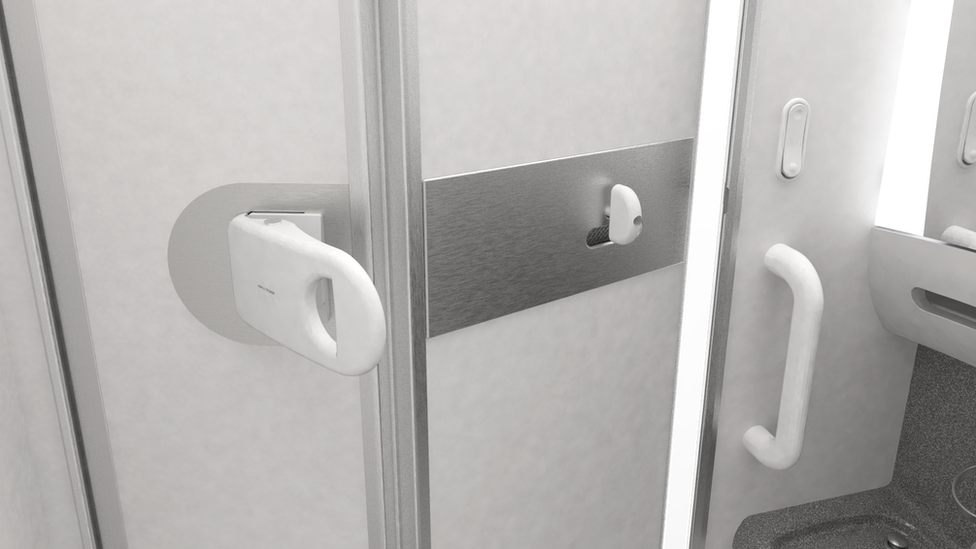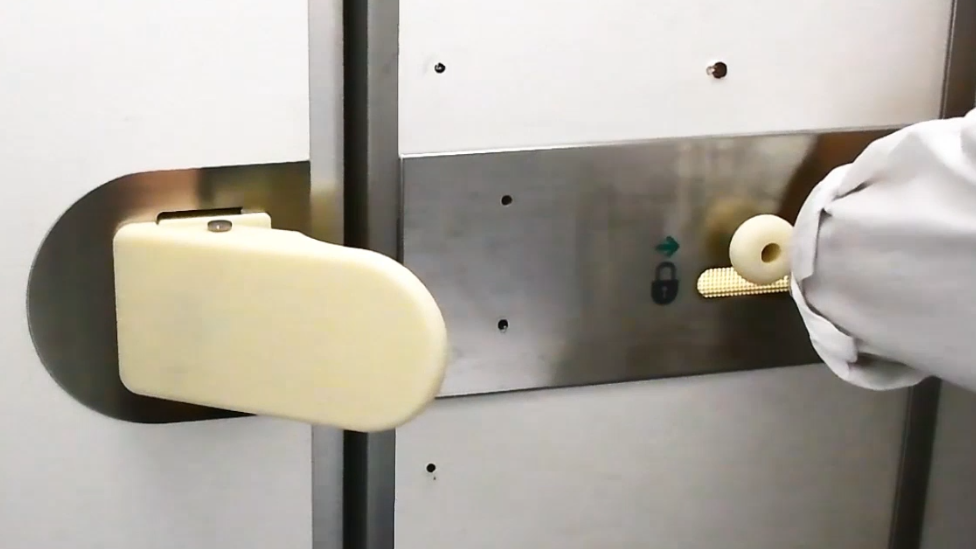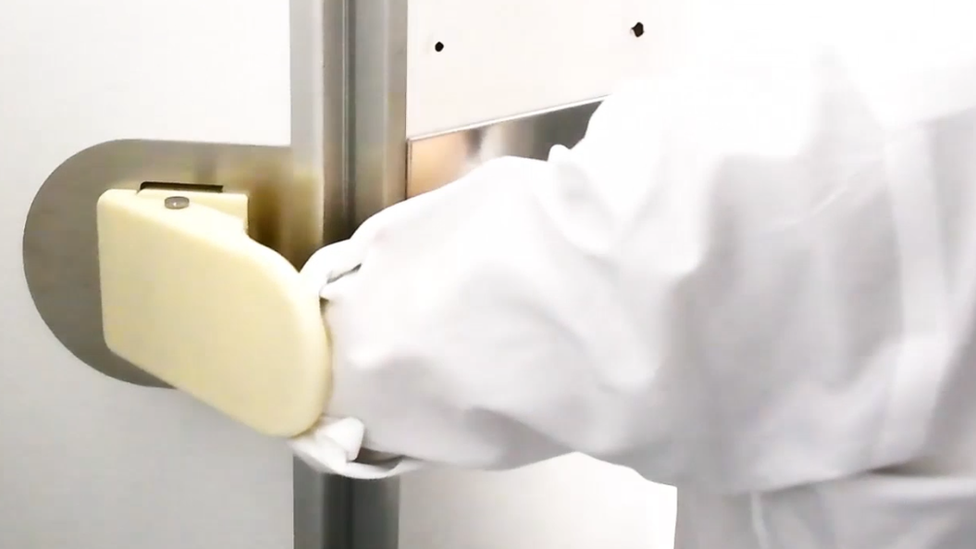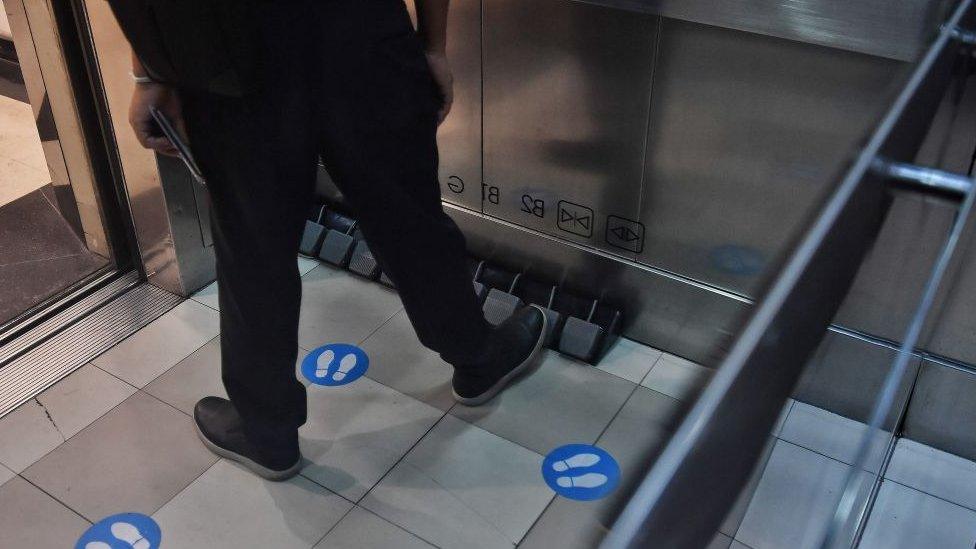Japanese airline ANA trials germ-busting 'elbow doorknob'
- Published

ANA hopes this door can go a long way in reducing germ transmission
It's no secret airplane toilets are probably the one place where passengers try to avoid touching - and the Covid-19 outbreak has only made it worse.
Japanese airline All Nippon Airways (ANA) is now trying to turn the bathroom experience into a more hands-free one, with a doorknob that can be opened and closed with the elbow.
It is currently on trial at Tokyo's Haneda Airport until the end of August.
ANA is collecting feedback to decide whether to roll out the system.
A spokesperson said the design was only in its "very beginning [of the] testing phase".
A hands-free experience
The "elbow doorknob" was first trialled in Haneda Airport in mid-June.
There are two different components to the locking mechanism, which has been jointly developed with aircraft interior supplier giant, Jamco.
The first involves a sliding lock, which enables the user to lock or unlock the door from the inside.

The first sliding knob locks and unlocks the door
A second door handle allows the user to then push the door open, so they can let themselves out.

The second allows the user to push open the door using the elbow
A spokesperson for ANA told the BBC that some of its planes were already fitted with sensor-type taps in the lavatories.
The airline therefore decided that it also wanted to make the process of door-opening hands free.
At first, it explored the option of opening the toilet door by foot, but decided to scrap this due to "safety reasons such as turbulence and the passengers might lose their balance".
It's not clear if the novel doorknob would have to pass through regulations and aviation standards before it is eventually rolled out.
Aircraft engineering firm Haeco Americas, is currently also developing a touch-free way to open a bathroom door through the use of sensors, according to CNBC.
But it's not just aircraft bathrooms that people are trying to avoid touching.
One mall in the Thai capital, Bangkok, swapped lift buttons for foot pedals in an effort to prevent the spread of the coronavirus.

One mall in Bangkok is going hands-free in its lifts
But according to the US Centers for Disease Control and Prevention (CDC), touching a surface or object contaminated with the virus and then touching one's own face "is not thought to be the main way the virus spreads".
In May, the CDC updated its guidance to say that Covid-19 spreads "very easily" from person to person through contaminated droplets produced by others as they talk, cough, sneeze and breathe.
Watch how germs spread and how you can prevent it
However, the CDC still encourages people to wash their hands and says frequently touched surfaces like door handles, bathroom taps and drinking fountains should be disinfected daily.
- Published28 February 2020

- Published3 May 2020
